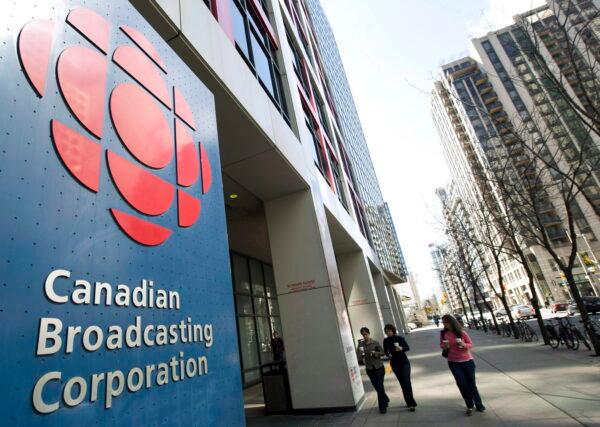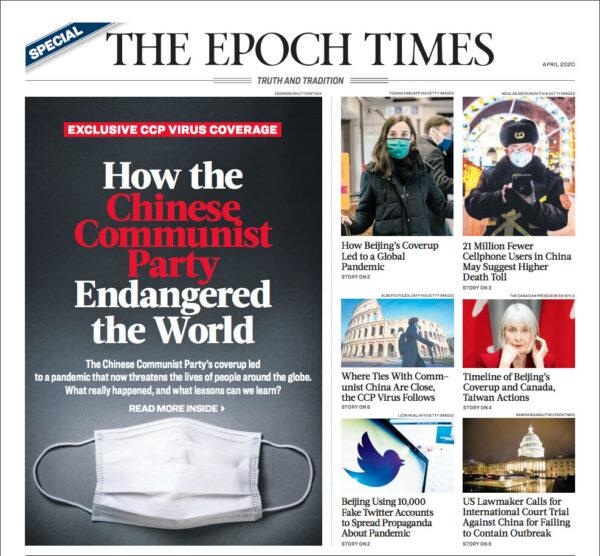Negative Reaction to CBC
Still, among the comments that remained on the story as of May 3, the top 400 most-liked comments, with the exception of one, were all critical of CBC’s reporting. A handful were critical of both CBC and Epoch Times.
Cindy Gu, publisher of the Canadian editions of The Epoch Times, says that while CBC’s article had a headline claiming to reflect the view of Canadians based on comments from two people—one of whom was unnamed—the “overwhelming” response to CBC’s report from its own readers and readers on other platforms has been negative.
“The CBC claimed in its headline that Canadians were outraged by our reporting,” Gu said. “The response from many CBC readers and critics in Canada shows this to be false. Was the CBC unable to find any of the voices who appreciated our coverage, or were they simply not interested in hearing them?”
Following are excerpts from the top five “most liked” comments on the article, with the number of likes indicated in brackets:
“Criticism of [Chinese] government … can’t be r[a]cist.” (217 likes)
“Very disappointed to see a story so slanted in favour of the CPC [Communist Party of China]. The CPC is not China and not the Chinese people.” (167 likes)
“I don’t understand why the media are so protective of the communist party of China which has no respect for human right[s] around the world.” (150 likes)
“It’s [The Epoch Times] a pro-democracy anti-comm publication. No wonder this media source [CBC] doesn’t like it.” (117 likes)
“I’m offended that Canada’s State Broadcaster is disseminating Chinese Communist Party propaganda with Canadian taxpayer funding.” (116 likes)
In addition to pushback from readers, the CBC has also met with backlash from pundits, including in an opinion piece that ran on the front page of the Saturday, May 2, edition of the National Post critical of the national broadcaster’s coverage of The Epoch Times.
On April 29, columnist Terry Glavin tweeted: “The CBC ombudsperson needs to deal with this. Should result in not just an apology to the Epoch Times, but to the Canadian public. The three (!) CBC journalists, and any producers involved, would benefit by being made to attend workshops in what racism is.”
Comments Deleted
Gu says after CBC’s article was published early on April 29, many people contacted The Epoch Times to express their support via phone and email, and some also complained that the CBC had been deleting their comments on the article.The Epoch Times captured a few logs of the comments later that day and also after commenting was closed the following day, and discovered that at least 400 comments had been removed as of May 3. One log showed there were 3,339 comments at one time, while only 2,921 comments remained as of May 3. The vast majority of the missing ones are critical of the CBC’s reporting. The actual number of deleted comments could be higher as Epoch Times could not capture all the comments that were quickly deleted throughout the day.

The screening is done either by moderators or by automated tools, according to Chuck Thompson, head of CBC public affairs.
That means that all of the 400 deleted comments must have passed the initial screening to be visible to the public before they were removed. It is not clear how many comments were rejected before becoming public.
According to Thompson, the rate of rejection is typically 10-20 percent, and could be as high as 50 percent if a story covers a “sensitive or highly controversial topic.”
“Comments may be rejected for a variety of reasons including straying off-topic, being insulting or abusive, breaking laws or violating community standards,” he said in an emailed response.
Moderators may then delete more comments even if they have already been made public.
“Despite our precautions, inappropriate comments occasionally slip through and, when identified, they are removed as part of quality assurance processes,” Thompson said.
For example, one deleted comment reads: “I guess the CBC doesn’t see any irony in the fact that they’ve been wrong throughout this pandemic more than the Epoch Times has.”
Another says, “Will any German Canadian feel offended now if a newspaper’s special edition reporting Konzentrationslager Auschwitz-Birkenau inside Nazi Germany? Ops, Rudy Gobert-Bourgarel wants you to think so. Really doubt whether CBC is now a Canadian taxpayer-funded State Mouthpiece for the Chinese Communist Party?”
The Epoch Times showed these sample comments along with others to Thompson and asked why they were removed, but received no response.
Following Epoch Times’ submission of questions to CBC, the total number of comments on the article rose to 2946, an increase of 25 compared to the previous total number on May 3, after commenting was closed in the morning of April 30. The Epoch Times didn’t check further what comments had been added back.
The negative response to the CBC’s coverage wasn’t limited to the commentary section of the article itself.
“Your story far from lived up to the integrity I expect of the CBC,” reads the first comment on the tweet, which has five likes, more than the original post. It adds that “criticizing the CCP is not racist, as the CCP is a political party, not China nor the Chinese people themselves. Conflating the two is playing directly into CCP propaganda.”




